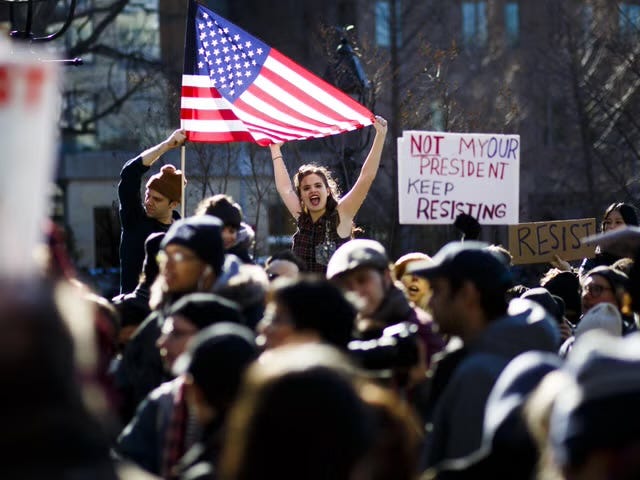Liberal Discord, Postliberal Peace
Philosopher Ed Feser examines our political polarization, and why liberalism cannot achieve peace.
Democratic peace theory holds that democratic states are inherently unlikely to go to war with one another. That’s not a proposition I’ll be examining in what follows. What I want to address instead is a notion that might seem a natural corollary – that a democratic state will also foster peace between the factions that exist within it. This might seem especially likely of a liberal democracy, which claims to tolerate a wide diversity of viewpoints among its citizens and to guarantee the same basic rights for all, those who lose out in the democratic political process no less than the winners. And it might seem to be likelier still when the main factions within a liberal democracy all endorse liberal democracy itself (as opposed to some factions seeking to overthrow it).
Yet this thesis does not sit well with the current political situation in Western liberal democracies, including the United States. A recurring theme of recent political commentary isconcern about how polarized American politics has become over the last two decades or so. Some even express the worry that the U.S. could eventually see either another civil war or a “national divorce” of the two main factions, though exactly how either scenario could play out is far from clear.
Of course, today’s partisans will claim that the problem is precisely that those on the other side do not respect liberal democratic institutions. But they also believe that their own side wants to uphold them. Progressives say they seek to “fortify” democracy against MAGA Republicans who refuse to accept the results of fair elections. Meanwhile, MAGA Republicans say they want to protect democracy from progressives who would stack the Supreme Court, censor dissent, deploy lawfare against their opponents, and rig the electoral process. While each side warns of threats to democracy, each also holds that these threats come only from the other side. Neither sees itself as disloyal to the liberal democratic order.
This would come as no surprise to Plato, who warned in the Republic that as democracies decay, each faction increasingly tends to accuse the other of being a threat to democracy, and to weaponize the legal system in order to bring the other to heel: “[Citizens] are then accused by their rivals of plotting against the people and being reactionaries and oligarchs, even though in fact they may have no revolutionary intentions… There follow impeachments and trials in which the two parties bring each other to court” (Book VIII, 565 b - c). This is one reason why, on Plato’s analysis, though democracies begin with high-flown rhetoric about freedom and equality, they can end in grubby tyranny.




